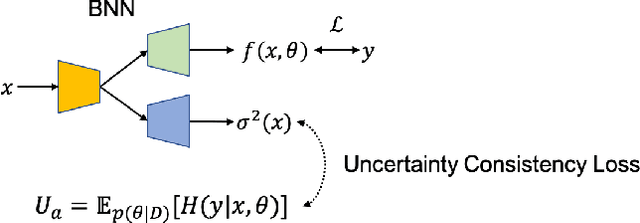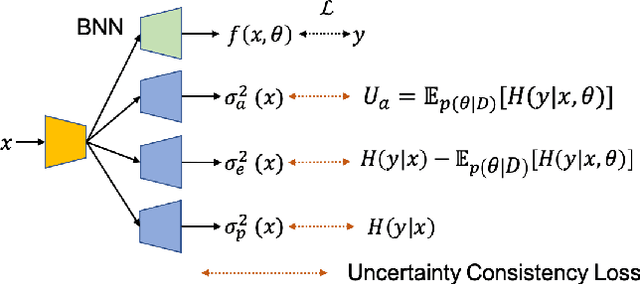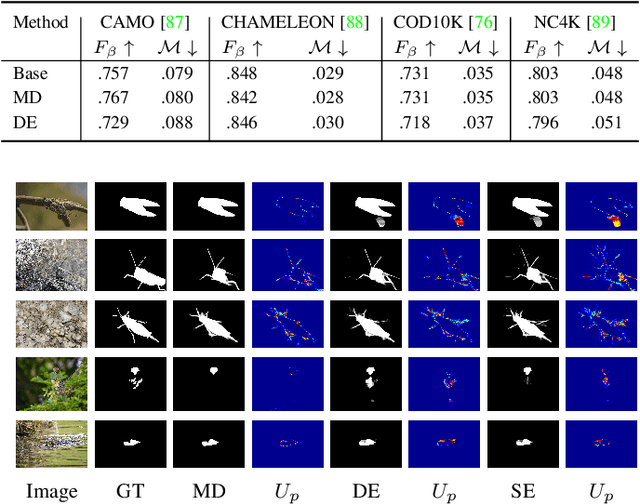Dense Uncertainty Estimation
Paper and Code
Oct 13, 2021



Deep neural networks can be roughly divided into deterministic neural networks and stochastic neural networks.The former is usually trained to achieve a mapping from input space to output space via maximum likelihood estimation for the weights, which leads to deterministic predictions during testing. In this way, a specific weights set is estimated while ignoring any uncertainty that may occur in the proper weight space. The latter introduces randomness into the framework, either by assuming a prior distribution over model parameters (i.e. Bayesian Neural Networks) or including latent variables (i.e. generative models) to explore the contribution of latent variables for model predictions, leading to stochastic predictions during testing. Different from the former that achieves point estimation, the latter aims to estimate the prediction distribution, making it possible to estimate uncertainty, representing model ignorance about its predictions. We claim that conventional deterministic neural network based dense prediction tasks are prone to overfitting, leading to over-confident predictions, which is undesirable for decision making. In this paper, we investigate stochastic neural networks and uncertainty estimation techniques to achieve both accurate deterministic prediction and reliable uncertainty estimation. Specifically, we work on two types of uncertainty estimations solutions, namely ensemble based methods and generative model based methods, and explain their pros and cons while using them in fully/semi/weakly-supervised framework. Due to the close connection between uncertainty estimation and model calibration, we also introduce how uncertainty estimation can be used for deep model calibration to achieve well-calibrated models, namely dense model calibration. Code and data are available at https://github.com/JingZhang617/UncertaintyEstimation.
 Add to Chrome
Add to Chrome Add to Firefox
Add to Firefox Add to Edge
Add to Edge